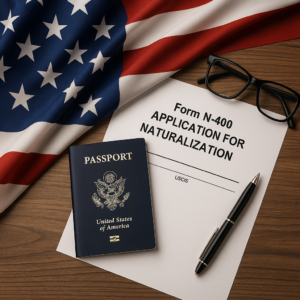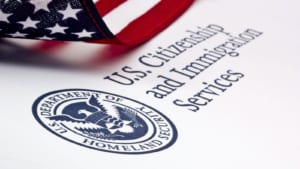On October 12, 2023, the United States Citizenship and Immigration Services (“USCIS”) posted Questions and Answers to announce new policy following the passing of the EB-5 Reform and Integrity Act of 2022 (“RIA”) on March 15, 2022. With the Q&A, USCIS announces its interpretation of the sustainment period following the passing of the RIA.
Under EB-5 law, an investor filing an EB-5 immigrant visa petition (Form I-526 or I-526E Petition –“I-526 Petition”) must have invested, or be in the process of investing, the required amount of capital in a new commercial enterprise in the United States and expect to maintain that investment for not less than two years. Once the investor has satisfied the two-year sustainment period, the investor is eligible to receive back his or her investment.
Prior to the RIA, an EB-5 investor was expected to keep their capital invested for not less than 2 years during their conditional lawful permanent residence period. The amendment in the RIA no longer requires that the investor sustain their investment throughout their period of conditional residence. Under the RIA provisions, an investor need only maintain their investment for 2 years. This means that once the two year investment period has been reached, an investor may receive back his or her capital, even if the investor has not yet obtained conditional residence.
Unfortunately, the RIA does not apply to investors who filed their Form I-526 Petition prior to enactment of the RIA. Consequently, investors who filed Form I-526 Petition prior to enactment of the RIA must sustain their investment throughout the two-year period of their conditional residence to be eligible for the removal of their condition. Moreover, such pre-RIA investor’s whose capital has been returned to the New Commercial Enterprise following the repayment of a loan to a borrower (the Job Creating Entity), must still redeploy that capital for it to remain “at risk” and continue to qualify an investor until that 2-year sustainment period has passed. This is a disadvantage to pre-RIA EB-5 investors.
Though the statute does not explicitly specify when the two-year period begins, USCIS interprets the start date as the date that the full amount of qualifying investment is made to the New Commercial Enterprise and placed at risk under applicable requirements, including being made available to the Job Creating Entity, as appropriate. If the investor invested more than 2 years before filing the I-526 Petition, the investment should generally still be maintained at the time the I-526 Petition is properly filed for USCIS to appropriately evaluate eligibility.
If you are considering immigrating to the U.S. via the EB-5 immigrant investment visa, make sure you talk to a qualified and experienced U.S. immigration attorney and can contact us at info@enterlinepartners.com and speak with a U.S. immigration attorney in Ho Chi Minh City, Manila and Taipei.
Ho Chi Minh City, Vietnam Office
146C7 Nguyen Van Huong St, Thao Dien Ward,
District 2, Thu Duc City
Ho Chi Minh City, Vietnam
Tel: +84 933 301 488
Email: info@enterlinepartners.com
Facebook: Enterline & Partners – Dịch vụ Thị thực và Định cư Hoa Kỳ
YouTube: @EnterlineAndPartnersConsulting
Website: http://enterlinepartners.com
Manila, Philippines Office
Tel: +63 917 543 7926
Email: info@enterlinepartners.com
Facebook: Enterline and Partners Philippines
Website: https://enterlinepartners.com/language/en/welcome/
Copyright 2023. This article is for information purposes only and does not constitute legal advice. This article may be changed with or without notice. The opinions expressed in this article are those of Enterline and Partners only.




